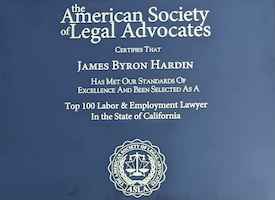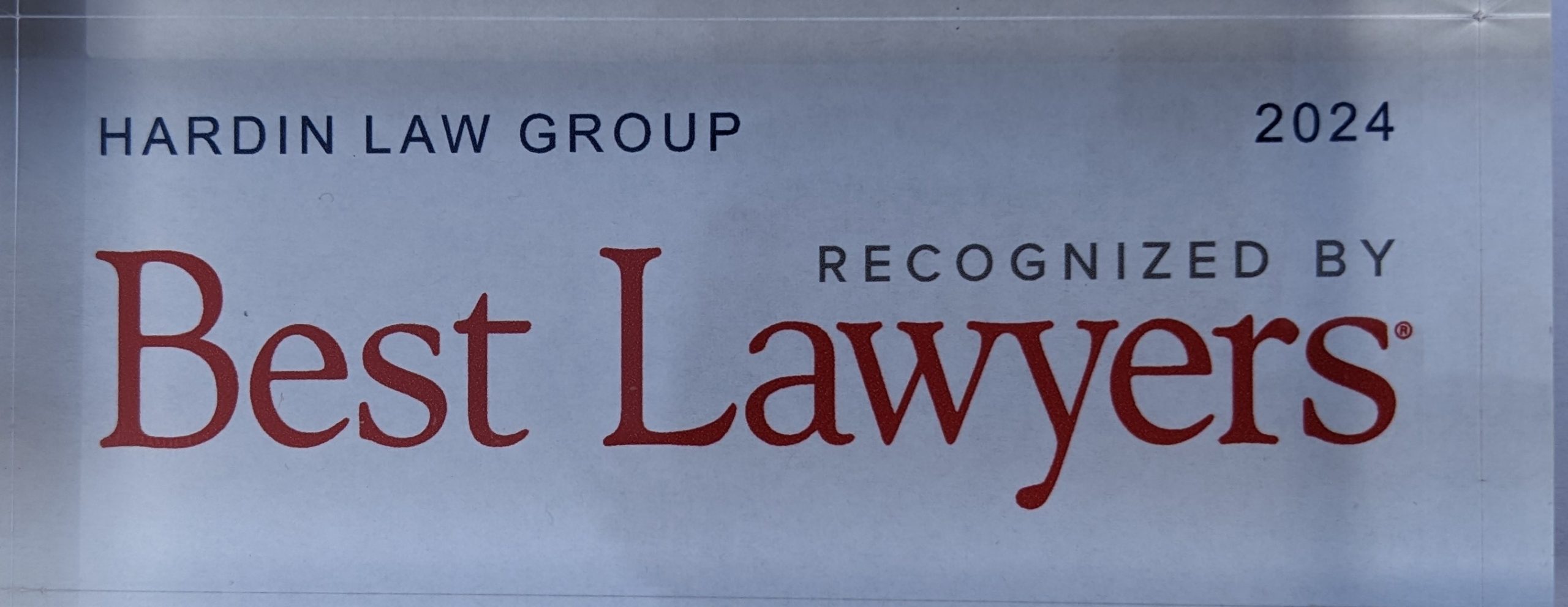We'll Fight for Your Job.
Trade Secrets
Knowledgeable Employment Lawyer Defending Workers from Claims They Divulged Confidential Information in Los Angeles and Orange County
Being accused by a current or former employer of misappropriating trade secrets is a serious situation that requires your full attention. However, many employers loosely make these claims in hopes of intimidating employees. In reality, employers must establish that the information they claim to be a trade secret actually meets that definition, which can be challenging.
If you are being accused of stealing or misappropriating trade secrets, the Hardin Law Group can help. With decades of experience representing employees in all types of employment disputes, our Los Angeles trade secrets lawyer knows what it takes to defend your actions and put your employer’s claims behind you. We also offer free consultation to all employees, during which we will answer your questions, outline the law, and explain what we can do to help. We also represent clients in Orange County trade secrets disputes.
What Is a Trade Secret?
A trade secret consists of confidential business information that provides a competitive edge to the company in its possession. Trade secrets derive financial or economic value from not being generally known to others who could profit from them. To qualify as a trade secret, a business must be able to establish each of the following elements:
- The trade secret must consist of information;
- There must be some value in the fact that others are not aware of the information;
- The information must not be known by the general public; and
- The owner of the information must make reasonable efforts to keep it a secret.
Thus, if your employer has not protected its company information or did not inform you that the information you are receiving is confidential, it may not be considered a trade secret and a claim against you for trade secret misappropriation may not be valid.
Below are a few examples of trade secrets:
- Client lists;
- Business plans;
- Financial information;
- Devices;
- Formulas or recipes;
- Source code;
- Unpublished patent applications;
- Patterns; and
- Unannounced products that derive commercial value from being kept secret.
Trade Secrets in the Tech Industry
Trade secrets are a significant type of intellectual property that are increasingly the subject of lawsuits, especially in California’s vibrant tech industry.
If you are not sure if something you know is a trade secret, consider what your employer said about the information, as well as whether the information was marked “secret” or “confidential,” was kept in a place with limited public access, or was the subject of a confidentiality agreement.
You should also consult your employee handbook and training materials since these documents will often list types of information that must not be used outside the company.
Inventors and Entrepreneurs May Develop Trade Secrets Independent of Their Employment
Los Angeles employees who create inventions on their own time and without using employers’ materials, facilities, or resources may develop intellectual property rights for their creations, including trade secret rights. However, employers routinely try to usurp these assets by claiming the employee developed the creation in relation to their employment. An experienced Los Angeles trade secrets lawyer can help establish your claim of right to your creations.
Are You Defending Against an Employer’s Claim You Stole Trade Secrets?
If your employer is accusing you of misappropriating trade secrets, it is essential that you work with an experienced employment attorney to ensure your interests are protected. At the Hardin Law Group, our Los Angeles trade secrets attorney has been representing employees in trade secret litigation for more than 25 years. This provides us with an unrivaled understanding of this complex area of the law, which we use to our clients’ advantage in negotiation and, if necessary, litigation. We also handle retaliation and wrongful termination cases on behalf of workers who were unlawfully fired for engaging in lawful activity. To learn more, and to schedule a free consultation today, call our Los Angeles employment lawyer at 310-606-2122. You can also connect with our Orange County employment attorney by calling 949-337-4810. Calling is free, and we will not accept payment for our services unless we can recover compensation on your behalf.





















